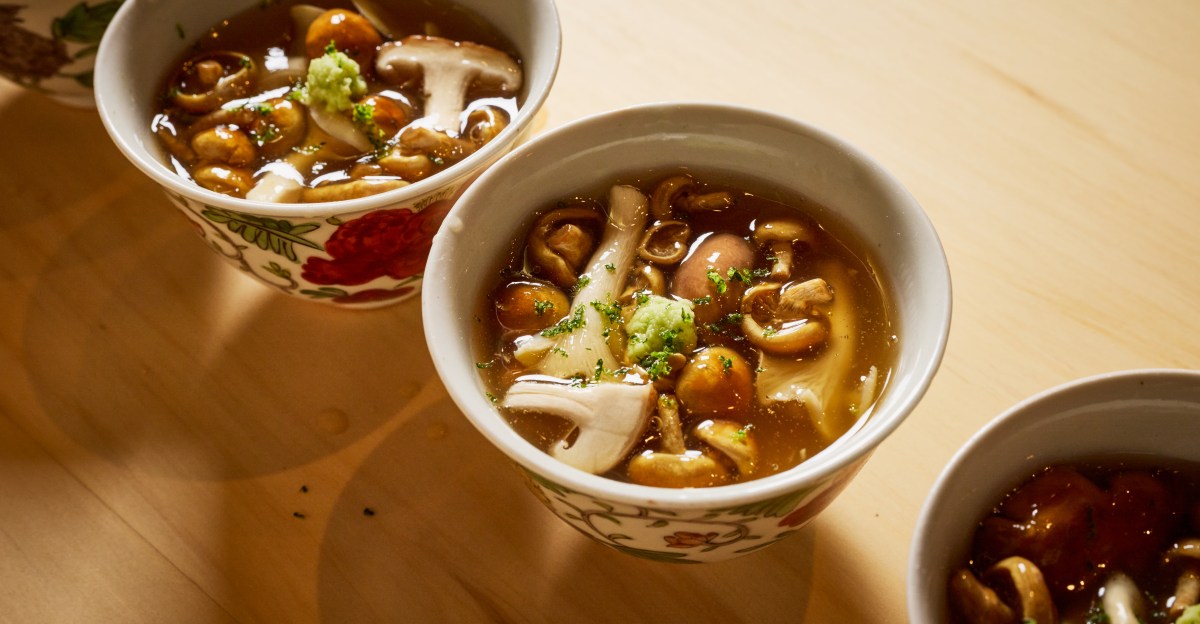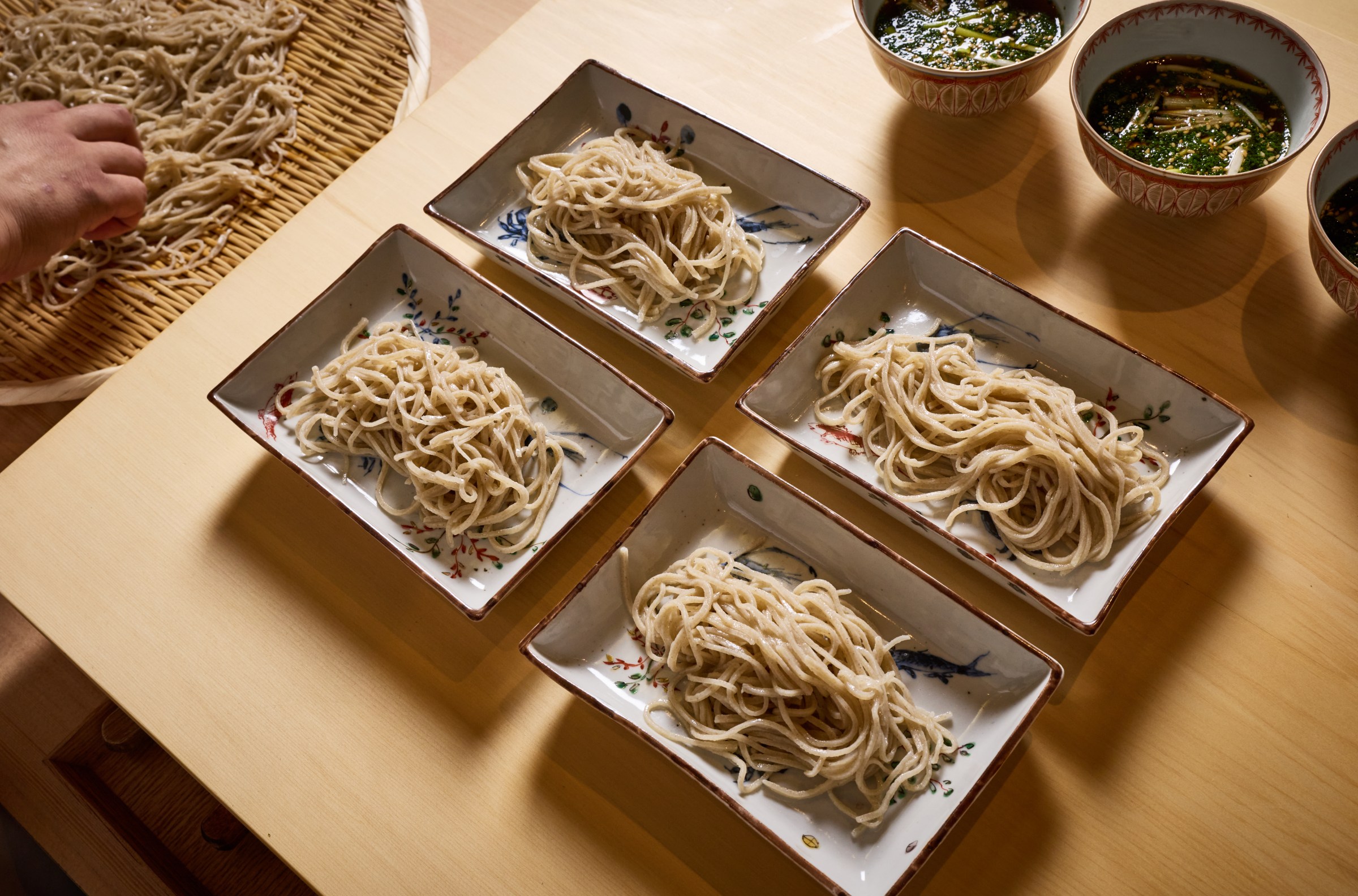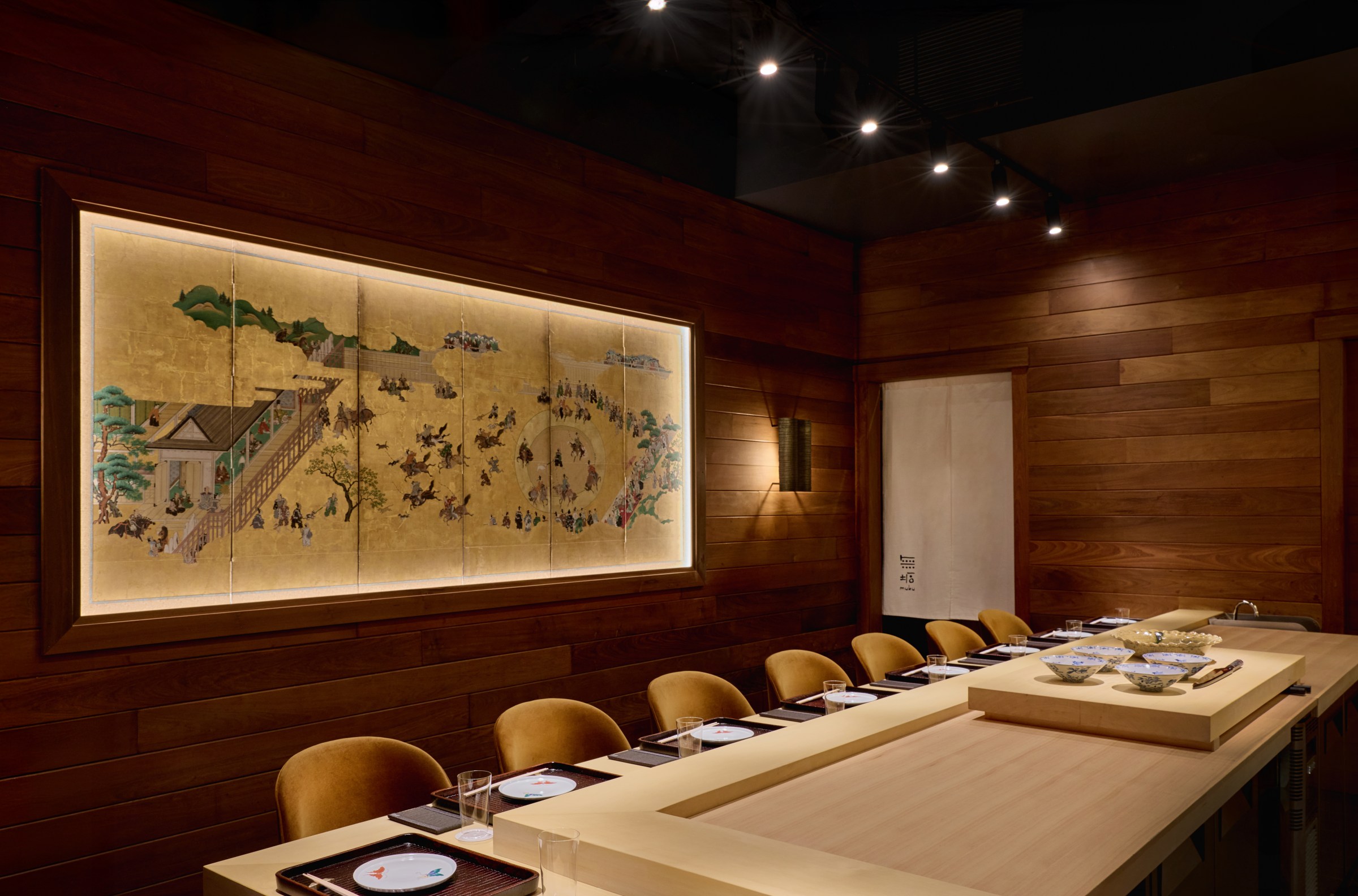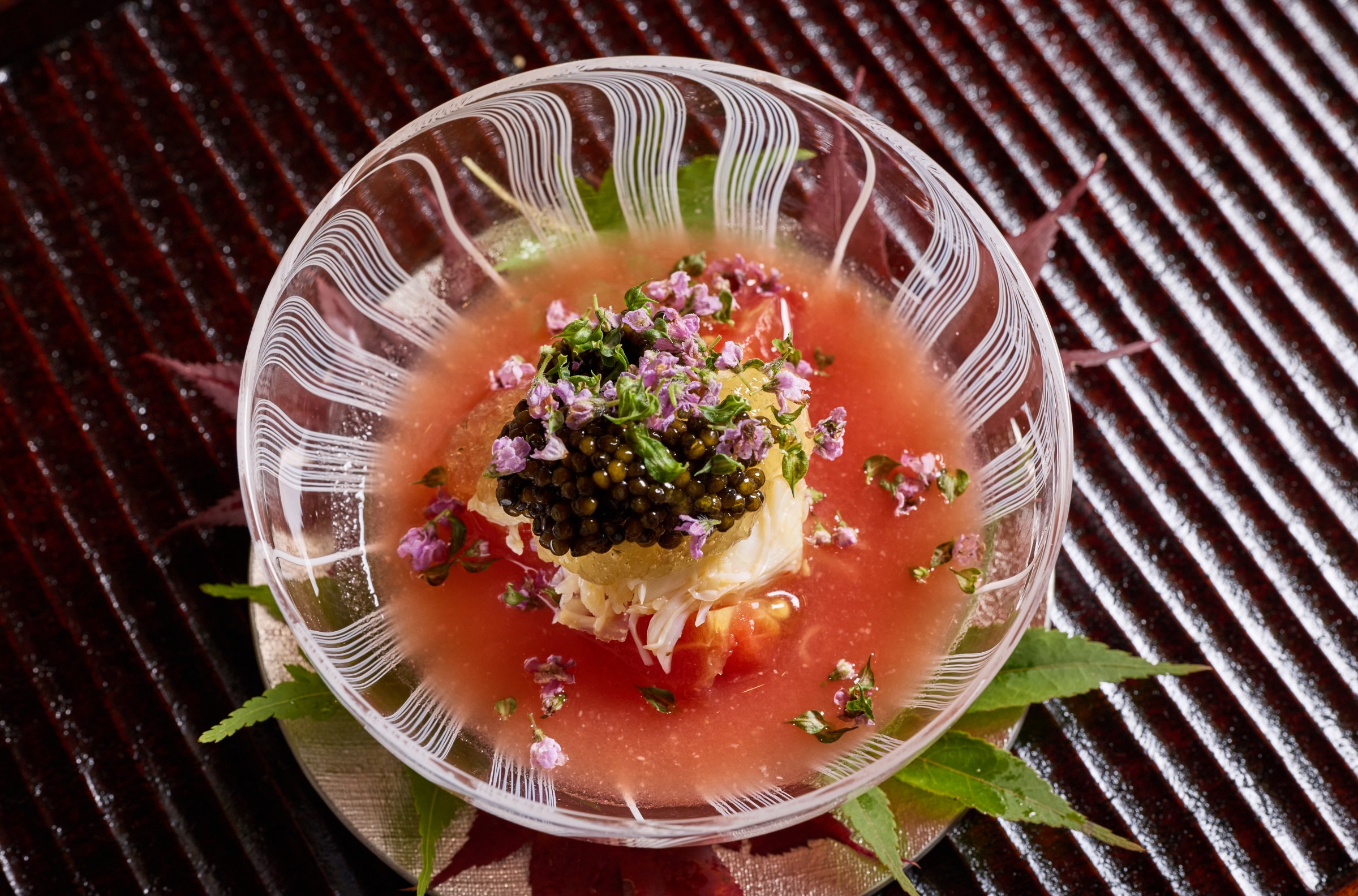Soba is having a moment in NYC — marked by the opening of places like Uzuki in Greenpoint and Hori, the new spinoff of a 200-year-old Tokyo shop. And now there’s a stunning course as part of a new kaiseki menu in Tribeca. Executive chef Manabu Asanuma makes his own using buckwheat flour shipped over from his family’s farm out in the Yamagata prefecture (where he grew up), known as the mogami wase variety. He builds his ni-hachi soba for the restaurant using 80 percent of that mogami wase buckwheat variety and 20 percent regular wheat, and some husks. The mixture results in hand-cut (intentionally) somewhat toothy and slightly uneven noodles, accompanied by a bowl of rich duck broth.
Muku, the new kaiseki spot that opened in Tribeca at 412 Greenwich Street, at Laight Street Wednesday, September 10, joins sibling fine dining space L’Abeille and the more casual L’Abeille a Côte, in what had been Sushi Ichimura. The opening is one of the most exciting new-guard kaiseki restaurants in New York. Kaiseki — marked by a progressive tasting menu — that allows diners to explore the five elements of Japanese cooking (raw, grilled, simmered, steamed, and fried), is approachable here, yet still very special.
Soba at Muku. Nobuyuki Narita/Muku
Along with soba, seasonal and quality ingredients shine throughout the $295 menu. The hairy crab swimming in a tomato soup is topped with a citrusy sudachi jelly and caviar; kamo eggplant floats in ichiban dashi; a ponzu-yuzu-kosho broth surrounds a fried Japanese barracuda that stays crisp; the chawanmushi is made with foie gras mixed with nameko mushrooms and gingko nuts. One of the latter courses features a rice bowl with minced chicken and maitake mushrooms topped with lightly grilled unagi — people can request more grains if they haven’t gotten their fill. Dessert is the cloud-like crown melon served with this sake ice cream.
Kaiseki and nihonryori (Japanese cuisine) had been the center of Asanuma’s culinary career. He studied and worked in Japan and Taiwan, with notable Japanese chefs like Koumei Nakamura and Akasaka Eigetsu. Then he made his way over to New York, where he worked at kaiseki-leaning restaurants like the now-closed Uchu and Odo. Most recently, he’d been the executive chef of Sushi Ichimura (Sushi Ichimura’s Eiji Ichimura was the executive sushi chef).
Muku. Nobuyuki Narita/Muku
The team slightly changed Sushi Ichimura’s look. Behind the open counter is an understated, elegant tsuchikabe wall, made using a traditional Japanese plaster treatment. Elsewhere, there is half of an 18th-century folded paper screen artwork depicting the samurai training exercise of dog chasing (there’s a cat if you look for it, too) with ink, color, and gold leaf details.
Behind Muku is still parent company Kuma Hospitality Group, co-owned by Rahul Saito and Howard Chang, which had overseen Muku’s predecessor Sushi Ichimura, led by the renowned Eiji Ichimura. From 2023 to 2008, Ichimura ran a version of his namesake restaurant in Midtown; he worked at sushi bar Brushstroke from 2012 to 2016; and then he ran another sushi spot Ichimura, in 2017, from which he took a leave of absence for health reasons six months later, and then sued the business to remove his name.
Ichimura opened this iteration of Sushi Ichimura in 2023. When the ownership team announced that the restaurant would close this summer, they explained that the chef was going to retire. However, he denied that and said he wasn’t retiring, but the restaurant still closed in August.
The hairy crab and tomato dish at Muku. Nobuyuki Narita/Muku
Kuma’s switch from Sushi Ichimuri’s nigiri-heavy menu to Muku’s homestyle Japanese dishes was intentional. “As more diners have travelled to Japan, we have noticed increased interest in the cooked portion of the experience at Sushi Ichimura and diners drawing parallels to their time in Japan,” the owners shared via a rep. “We believe the New York diners now understand what great sushi is about, and the next step in deepening the understanding of Japanese culture is to introduce a kaiseki-style nihonryori restaurant where the goho classical cooking techniques can be celebrated and take center stage.”
Muku is open for two seatings at 5:30 and 8:30 p.m. Tuesday through Saturday, with reservations bookable online.



